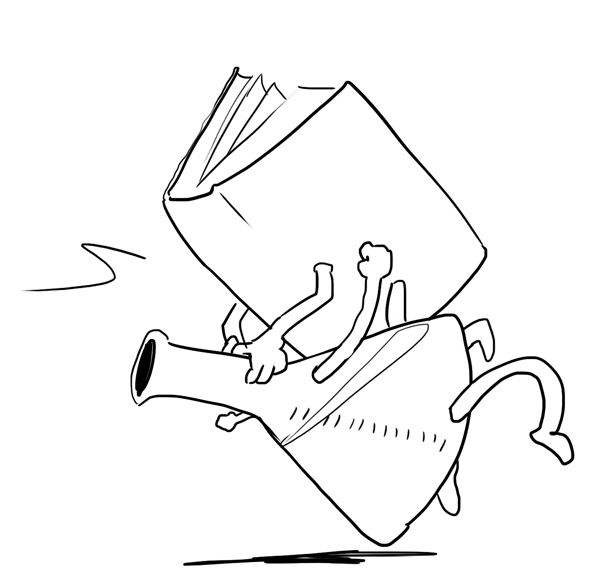By Ashley Mussbacher (The Cascade) – Email
Print Edition: November 27, 2013
It’s the end of another semester, and December looms before us with its deadlines, exams, and Christmas obligations. We are surrounded by fatigue and the scent of strong coffee. There’s a flu that’s been tearing at our lungs for the past two weeks. Some of us write notes in our binders of little to-dos, before we forget. At this point, it would be easy to flip the desk and walk away, call in for an early winter break. But then, wouldn’t it all be for nothing?
You’ve managed to get this far, you can go a little further.
Regardless of the subject, science or humanities, we’re all tired at this time of the year. There’s a common misconception that students of one discipline don’t work as hard as in the other. Some in science say the arts have it easy, just make things up, while others oppose those in science and claim the answer is either right or wrong – how hard is that?
Near the end of each semester when the deadlines and all-nighters begin to stack up, we hear these snide remarks more and more. Since when did we start letting our subject define who we are as people?
Do those who study physics ever listen to music to help them through a tough assignment? Has someone who writes poetry ever been inspired by fire?
We’ve forgotten that, at one point, science and art were studied as one. It’s like the yin and yang of our intellectual community; one cannot exist without the other. It’s equally impossible to find a person who has never created anything in their life, or who hasn’t asked a single question about their existence.
Community is created by the use of language in narrative, mark-making in art, and notes of song, as well as our unending quest to discover and rediscover ourselves and the fundamental systems of our universe. We know intrinsically that we cannot grow without studying the history of our mistakes, both as a society and as individuals. We also seem to understand that we need mathematics to track how we can make changes for the future.
Those who find solace in working with numbers and equations may have different day-to-day priorities than someone who paints in a studio, but they still feel in the same way. “Cold and calculating” might refer to a fictitious character in a novel, but the word calculating doesn’t mean mathematicians are cold just because it’s used in this context.
It can go the other way too. Those who follow their passion in writing and study literature know as well as any scientist how to create and recognize logical connections between ideas within prose.
If we stop and ask why there is a division between our two departments, we’ll realize it comes down to a lack of understanding of others and ourselves. We are all individuals, we all learn and find passion in different ways.
So, in this last week of semester, as the weather turns cold and the days get shorter, let’s make a last-ditch effort to not only finish our barrage of assignments and write those final exams, but to be mindful that everyone is feeling the crunch, regardless of subject.
Albert Einstein says it better than I ever could: “The most beautiful thing we can experience is the mysterious. It is the source of all true art and all science. He to whom this emotion is a stranger, who can no longer pause to wonder and stand rapt in awe, is as good as dead: his eyes are closed.”


